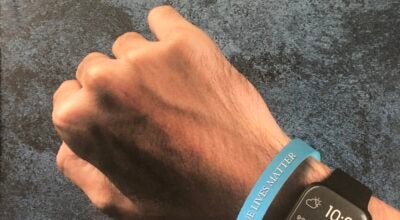Keith Wishum: If you’ve ever felt left out or excluded
Published 2:38 pm Saturday, February 2, 2019
Maybe it wasn’t the words that were important. Maybe Zacchaeus, raised as a Jew and trained in the Scriptures, already knew everything he needed to know. Maybe before that lunch, he just hadn’t felt what he needed to feel.
Some of us learned in a Sunday school song that Zack was a “wee little man.” The song fails to mention that he was a hugely hated man. As a tax collector and a chief one at that, he was considered a traitor and a crook. He was damaged goods and despised. That’s what he felt.
Zacchaeus needed a friend. So, Jesus had lunch with him. We don’t know what they talked about. All we know is that God-in-the-flesh befriended a man everyone else avoided. That said something profound — to Zacchaeus, and to us.
What did he say? Did you hear?
It must have been really something, because the guy who heard it made some startling changes. As a person who could stand to be better, I’d like to know what sparked that kind of change. As one who speaks to others hoping to motivate change, perhaps I could learn something about how to do that.
I’m talking about what Jesus said to a guy named Zacchaeus. Passing through Jericho, Jesus met Zack and had lunch with him. Next thing you know, Zacchaeus, who was filthy rich, announced, “Here and now I give half of my possessions to the poor, and if I have cheated anybody out of anything, I will pay back four times the amount” (Luke 19:8). My guess is that the line for refunds formed immediately.
What did Jesus say? What could he possibly have said to prompt such a sudden and dramatic shift in Zack’s lifestyle? Did he threaten him? Did he heap guilt on him? Promise to reward him?
Oddly, we don’t know. God thought it important for us to know about Zacchaeus, so the story is included. But nothing is recorded about what Jesus said. I wonder if that says something.
If we listen with our hearts, we can hear what Jesus said that day. To us who sometimes feel like Zacchaeus, Jesus said that we are loved and accepted in spite of our flaws. To us who are sometimes like Zack’s Jewish neighbors, he said that we’d do better helping people change by loving them before they change, instead of insisting they change first.
Can we hear what he’s saying?
Keith Wishum is minister, Williams Road Church, Americus.



